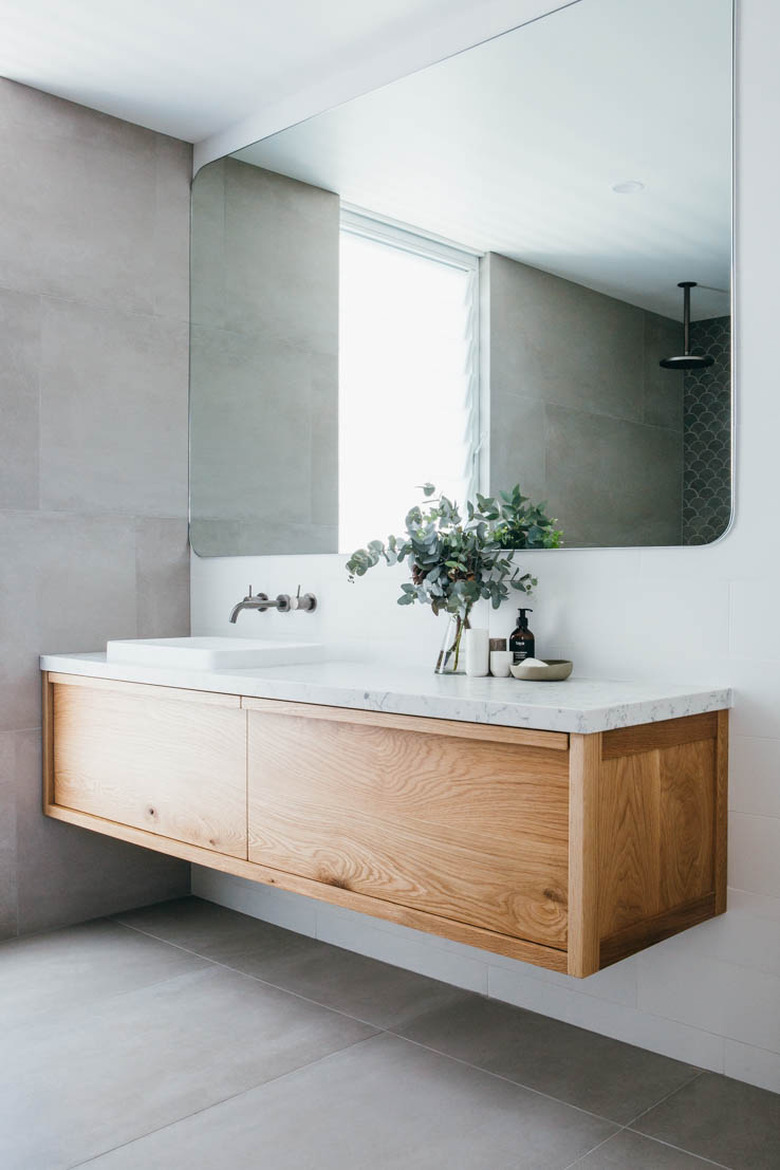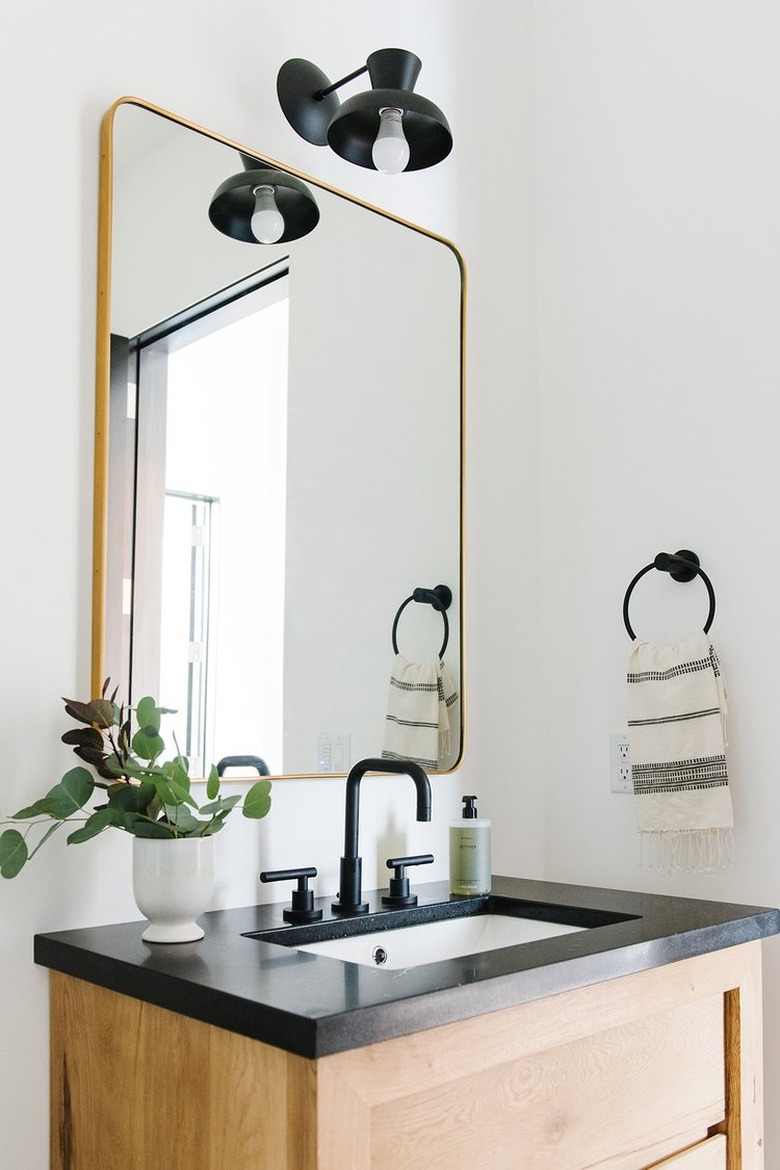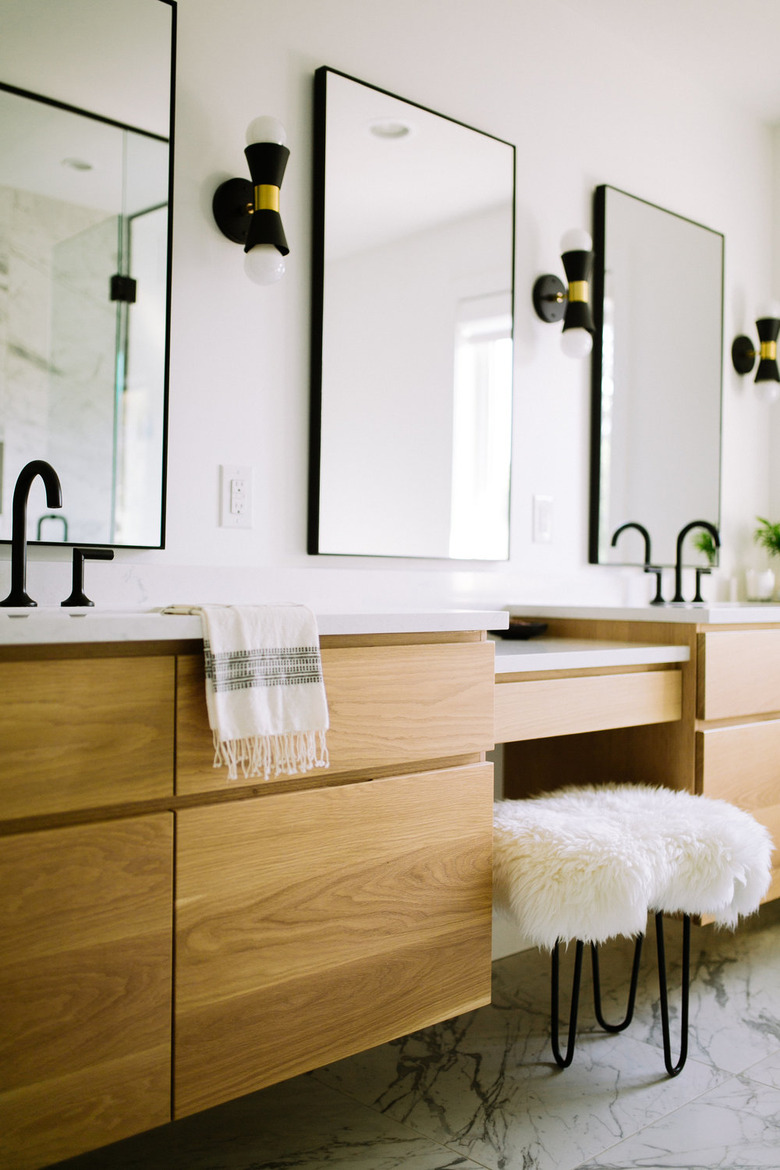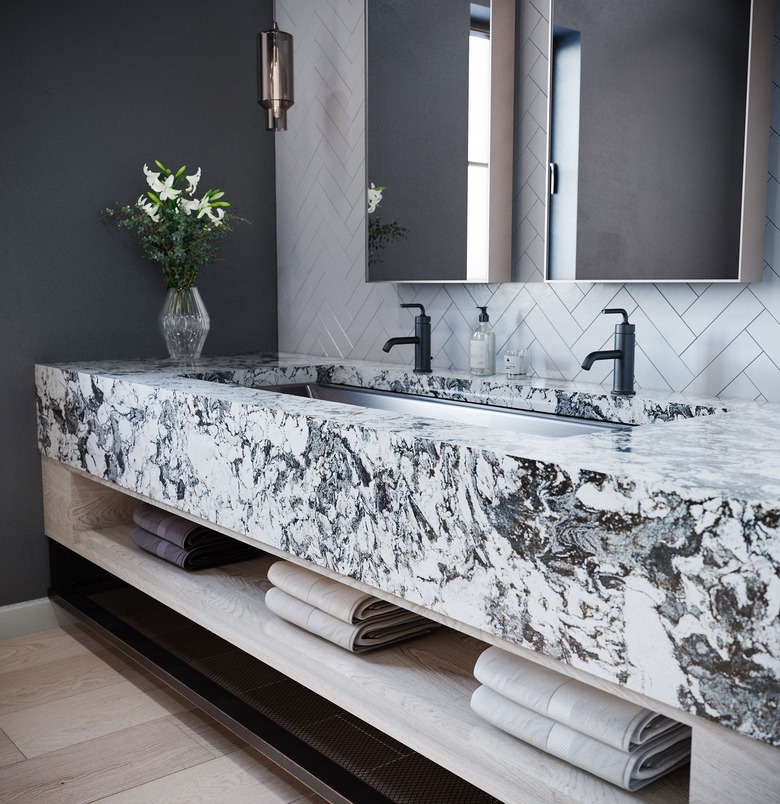What You Need To Know About Quartz Bathroom Countertops
From marble and granite to wood and concrete, there are a number of countertop materials to choose from. But if you want to get that luxe marble look in your bathroom without breaking the bank, we've got the inside scoop on the best way to do that. Enter: quartz bathroom countertops. If you've never considered the man-made solution, it will definitely be on your radar now. Here's everything you need to know about the engineered stone.
Quartz Bathroom Countertops Overview
Quartz Bathroom Countertops Overview
Quartz countertops are formed by combining 90% ground quartz with polyester resins and pigments to give it color. Quartz is one of the hardest minerals on earth, so the formula creates a very strong granite-like surface, which is also eye-catching thanks to the ability to customize the material. It comes in a variety of colors, and specks of glass or streaks can also create veining. The final appearance depends on how the quartz is ground — coarsely ground quartz produces a flecked appearance, while finely ground quartz produces a smooth look.
Granite vs. Quartz Bathroom Countertops
Granite vs. Quartz Bathroom Countertops
When it comes to the quartz versus granite battle, there are a number of things to take into consideration. Quartz countertops are a mix of quartz and man-made resin, and therefore are more susceptible to damage from heat but less likely to stain — pretty ideal for a bathroom in our opinion. Granite, on the other hand, is a natural stone that needs to be sealed once a year. However, on average, it actually costs a little less than quartz. Nevertheless, if you're looking for more customization opportunities, quartz is the only way to go.
Quartz Bathroom Countertop Costs
Quartz Bathroom Countertop Costs
The price for quartz starts at $70-per-square-foot, but can cost as much as $200-per-square-foot depending on your requirements. Check out brands such as Caesarstone, Silestone, Zodiaq, and Cambria if you want to compare different options. Remember that if you've got a budget in mind, stick to it!
Pros of Quartz Bathroom Countertops
Pros of Quartz Bathroom Countertops
Quartz countertops are mighty strong like granite, and have the added benefit of being more flexible, making them less likely to chip or crack. The material is also stain-resistant, which means that it can handle all of those potions and lotions that are part of your daily routine. And if anything spills, it is very easy to clean. Another bonus: quartz is non-porous and does not require any sealing, meaning your bathroom countertop would be virtually maintenance free.
Cons of Quartz Bathroom Countertops
Cons of Quartz Bathroom Countertops
There are only a few drawbacks of quartz bathroom countertops, but they're important to consider nonetheless. Quartz can discolor over time when exposed to direct sunlight, so if your bathroom is a place filled with natural light, you may need to take extra care to avoid seeing a color difference. As we mentioned earlier, they're also not great for high heat levels, so you'll need to protect them from hair straighteners or other hair styling tools. Lastly, seams will be visible with quartz countertops, so take note of this if you're using the material for a larger surface area.
1. Keep it clean and simple.
1. Keep it clean and simple.
A light veining in your quartz bathroom countertop can create a high-end finish with very little effort elsewhere. This transitional space by Jenny Komenda of Juniper Home makes use of an elegant white look that lends a light and airy sophistication to the room.
Get the Look: Cambria Matte Brittanicca
2. Be daring and give black a try.
2. Be daring and give black a try.
You can add contrast and depth to your bathroom by opting to go with black quartz. Shea from Studio McGee shows us exactly how it's done in this space complemented with black fixtures, a wood cabinet, and brass framed mirror. Besides, black is always a classic, right?
3. Opt for the marble look.
3. Opt for the marble look.
Quartz bathroom countertops make a beautiful addition to a floating vanity cabinet, especially if you select a product with marble-inspired veining. Australian renovators Kyal and Cara paired this vanity top with a self-rimming sink and wall-mounted faucet — très chic!
Get the Look: Silestone Lyra Suede Finish
4. Split it up.
4. Split it up.
If you're looking for something a little bit different, try joining two vanity cabinets together with a mini dressing area and top it all off with a quartz bathroom countertop. This space designed by Jaclyn Peters features matte black fixtures and brass details, giving us all the Hollywood vibes.
5. Lay it on thick.
5. Lay it on thick.
An extra thick quartz bathroom countertop is a one-way ticket to a super luxe design. This dramatic space features a black and white marble-inspired surface with a rectangular undermount sink quartz that just oozes style.
Get the Look: Cambria Huntley Black Marble Collection




